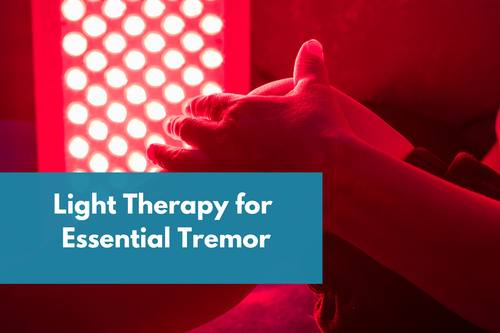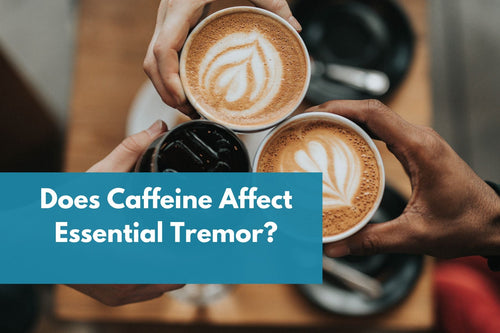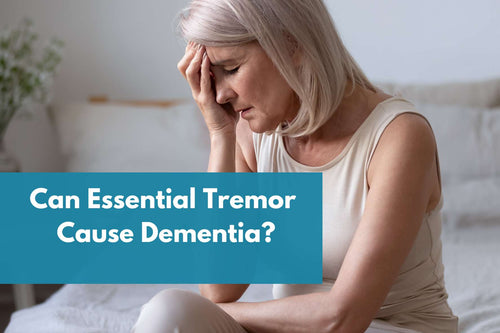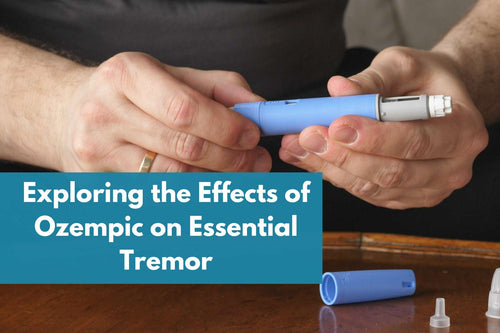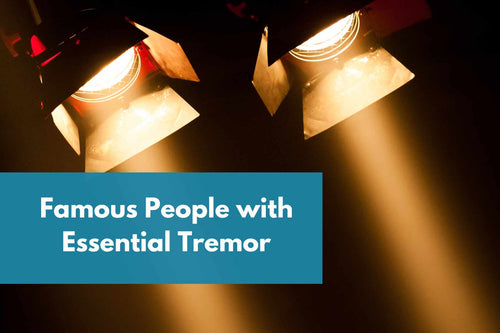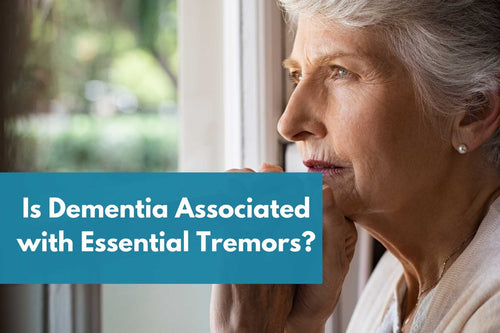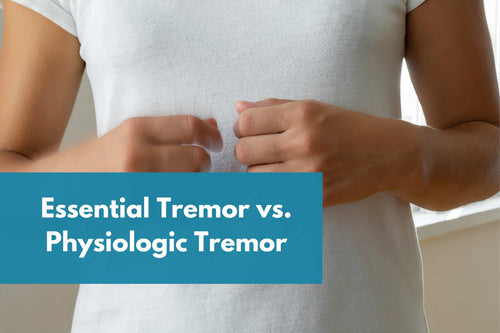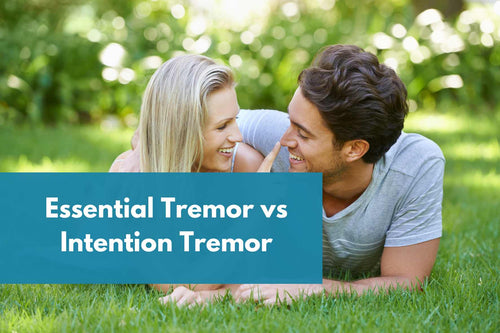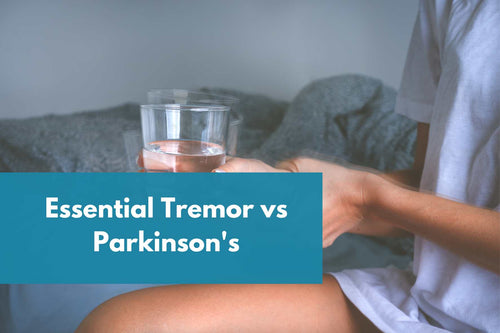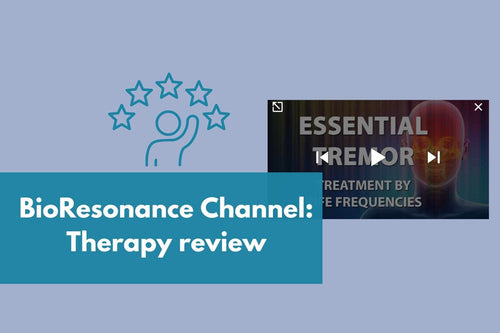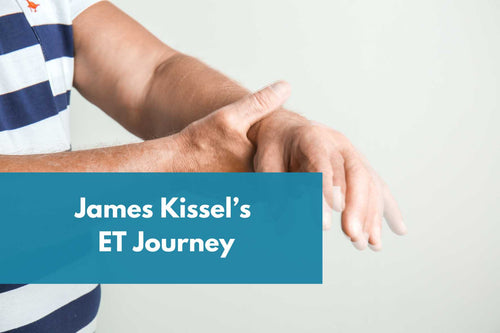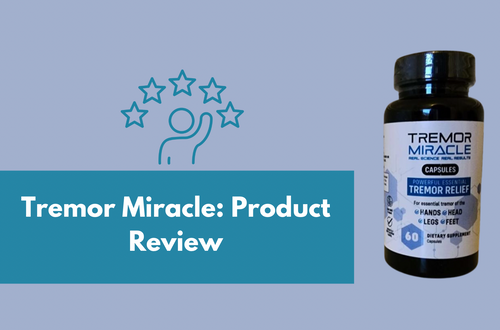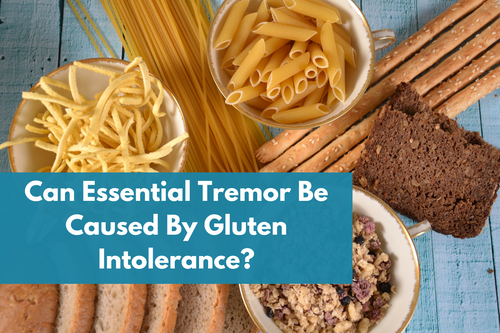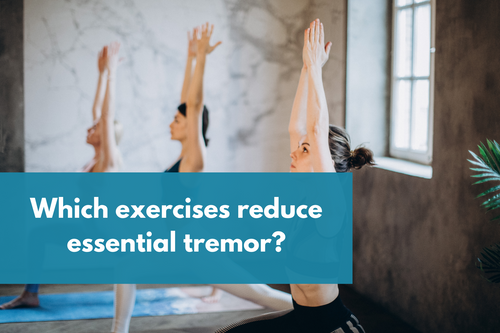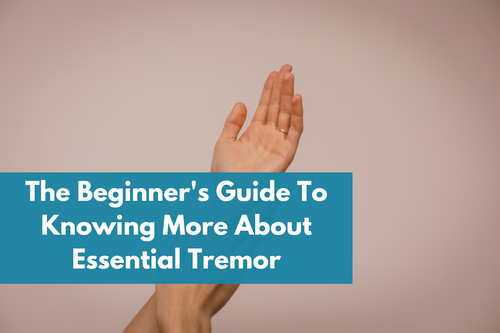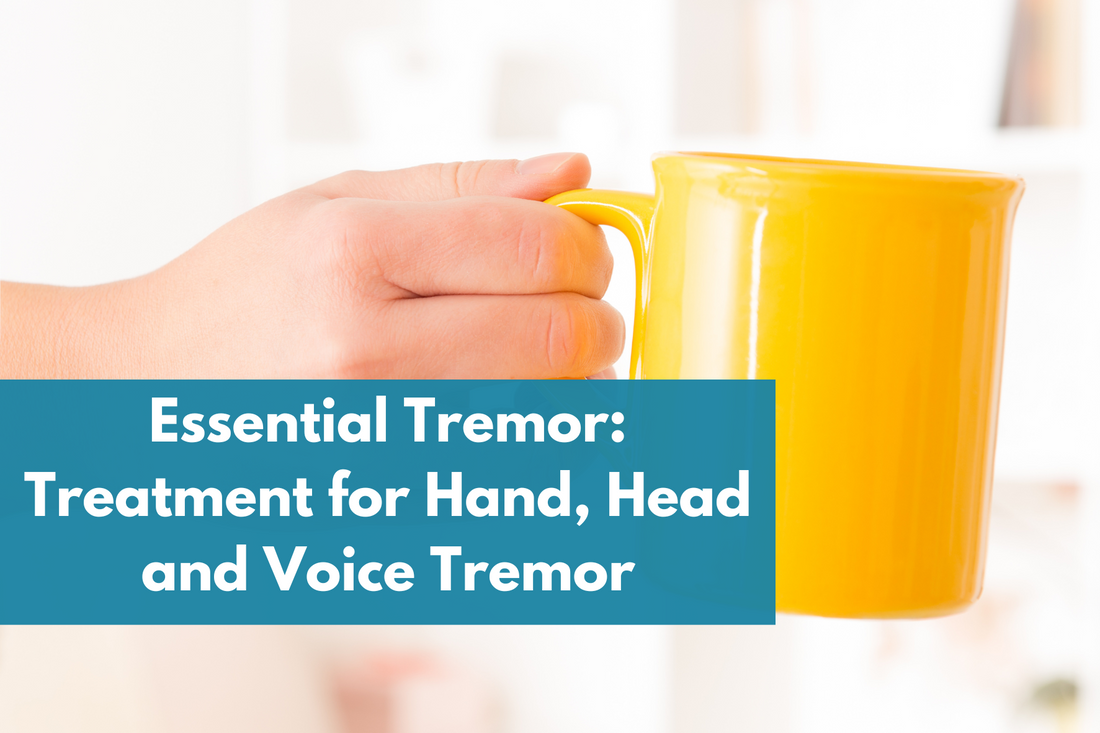
Essential Tremor: Treatment for Hand, Head and Voice Tremor
Share
Worried about trembling hands? I understand that living with tremors can be terrifying, especially when you don’t know the exact cause. These involuntary rhythmic movements may indicate an underlying neurological condition. One such condition is called essential tremors.
In fact, almost 10 million people in the US suffer from ET. Despite its high prevalence, it’s often mistaken for other movement disorders due to common symptoms. Curious if your hand tremors are caused by essential tremors? Read on to know how essential tremor affects your body and the tips to deal with it.
How do essential tremors affect your body?
ET is a common neurological disorder that causes involuntary and rhythmic shaking in various body parts. The location and duration of the tremor vary from person to person. But most commonly, it affects hands, head, voice and jaw.
In fact, stats show that 90% of patients with ET have tremors in their upper extremities (arm and hand), 30% have head tremors, and almost 20% suffer from voice tremors. Rarely, it causes lower limb tremors in nearly 10% of the patients.
These tremors are categorized as either kinetic or postural. Kinetic tremors are those involuntary movements you experience while doing purposeful tasks, such as holding a cup or writing. On the other hand, postural tremors occur when you maintain a specific position against gravity, e.g., keeping your arms outstretched.
The frequency of these tremors ranges from 4Hz-12Hz. To put it in simple words, frequency is how many cycles (shakings) you have in one second.
Plus, it might affect your balance and gait. Research shows that almost 50% of ET patients have difficulty following tandem gait. Tandem gait is when a person walks in a straight line, and his leading foot’s heel touches the toe of the other foot.
Treatment options for essential tremor
Unfortunately, there’s no cure for ET. But the good news is you can minimize the symptoms through treatment and lifestyle modifications. And for mild cases, you won’t even need any treatment.
The management of essential tremors includes medications such as beta blockers and antiseizure. If your tremors fail to respond to pharmacotherapy, your doctor may suggest surgery based on the severity of the condition. Below are some of the approaches for managing tremors based on their location.
Hand tremor
Hand tremor is the prominent clinical presentation of ET. Currently, the following therapies are prescribed for their management.
1. Medications
Propranolol and primidone are the first line of therapy for treating shaky hands. Propranolol is a beta blocker that acts by blocking nerve impulses. Almost 50 to 60% of people taking this medication experience improvement in symptoms. Primidone is an antiseizure drug that is equally effective in reducing tremors. Although these medicines are also used for other tremors, they benefit the hand tremors most.
2. Assistive devices
These are external devices that help you perform daily tasks with steady hands. For example, simple wrist weights can improve hand function if you experience mild tremors.
Many other tools are approved FDA to control abnormal shaking. Anyone with ET can get benefit from these devices, but it might not work for you if you experience disabling tremors.
3. Deep brain stimulation
Deep Brain Stimulation (DBS) is a surgical procedure during which your surgeon will place electrodes in the part of brain called thalamus. Your doctor will connect these electrodes to the pacemaker-type device under the skin of your chest. This procedure helps your brain correct the faulty signals that cause tremors.
People with severe tremors that don’t respond to medicines can benefit from this technique. It is usually done on one side of the brain, and the tremors get better on the opposite side of the body. A study concluded that patients with ET who underwent unilateral deep brain stimulation experienced 83% reduction in the contralateral arm and hand tremors.
Head Tremor
Head tremor associated with ET involves involuntary rhythmic movements of the head in a horizontal (no-no) and vertical (yes-yes) direction. Below are some of the considerable strategies for the management of these tremors.
1. Medications
Pharmacotherapy for head tremors includes the same medications, propranolol and primidone. But 30-50% of the patients may not respond to these drugs. The second line of drugs includes topiramate and gabapentin.
2. Botulinum toxin injection
Botulinum Toxin, commonly called botox, is a neurotoxin that temporarily blocks muscle movement. Your healthcare provider will administer the injection directly into the target muscles of the neck. It weakens the muscles and thus dampens head tremors.
Botox injections are quite effective for the treatment of head and voice tremors. It isn’t much useful for hand tremors as it can cause weakness in extremities. Its effect lasts up to three months, and you will require a repetitive dose every 3-4 months.
3. Surgery
Head and voice tremors are usually difficult to control and require surgery on both sides of the brain. Also, there is conflicting evidence about the usefulness of DBS and thalamotomy in treating shaky head and voice.
Voice tremor
Essential voice tremors affect larynx and cause changes in pitch or loudness. The voices of people with essential tremors sound unstable as if they are nervous.
Treatment strategies for vocal tremors include botox injection (gold standard), medications and speech therapy. Vocal therapy focuses on breathing exercises and relaxation techniques to decrease tension in the head and neck to minimize symptoms.
How do I know if I have essential tremor?
ET isn’t an easy diagnosis as there are no specific tests for it. Usually, essential tremors get better with alcohol intake. But there’s no way you can simply tell if ET is to be blamed for your hand tremors. There are several conditions that cause symptoms similar to ET, especially Parkinson's disease.
Only a healthcare provider can tell if you are suffering from essential tremors. He might observe your performance and ask you to draw a spiral or hold a cup to rule out Parkinson's disease. Apart from that, he might evaluate your medication history, as some drugs cause tremors. Anyways, getting a second opinion from a specialist is always better.
Tips for minimizing essential tremors
Below are some tips you can take at home to alleviate your symptoms while you wait to see your doctor.
- Avoid caffeine consumption.
- Try relaxation techniques such as yoga or deep breathing exercises.
- Avoid stressful situations as stress can trigger tremors.
- Avoid consuming alcohol in large amounts. Its small amount may help you improve symptoms. But excessive intake not only causes a hangover but also makes the tremors worse.
- Don’t smoke.
- You can also consult any pharmacist to see if any medication you are taking is causing tremors.
Conclusion
Essential Tremor is a neurological condition that causes involuntary and rhythmic shakings in arms, hands, head, voice, face and jaw. Its treatment depends on the location and severity of the treatment. Patients who don’t get any better with medications may get benefit from surgery. You can take some tips to alleviate the symptoms while you wait to see your doctor.
Author: Syeda Qurat ul Ain Ali, Doctor of Pharmacy from Pakistan's Shifa College of Pharmaceutical Sciences.

